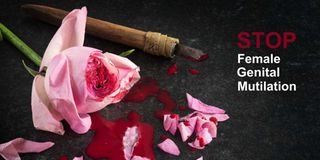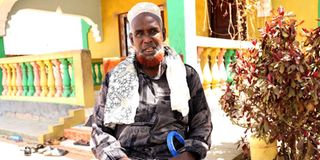Elders, circumcisers in hotspot counties join campaign to end FGM

As part of their Anti-FGM efforts, elders have committed to work with the national and county governments and other stakeholders in eradicating the practice.
What you need to know:
- Elders in West-Pokot and Marsabit counties have denounced the practice, terming it retrogressive.
- Marakwet cultural leader Mr Chelang’a Cheptoo declared their (leaders’) commitment to end the vice.
- The Narok County Maasai Council of Elders also, in September, noted that FGM is no longer a cultural rite.
- Recently, the Borana Council of Elders locally known as Guma Gayo, also renounced FGM terming it illegal.
In November last year, President Uhuru Kenyatta issued a directive ordering the government to ensure Female Genital Mutilation (FGM) is eradicated by 2022.
To make the directive achievable, the president launched the National Policy on Abandonment of Female Genital Mutilation.
The policy puts cultural, religious leaders and elders from 22 FGM hotspot counties as key stakeholders. They would partner with the government towards eradicating the outlawed practice in the country.
The ministries of Public Service and Gender, Interior and Health and other agencies including the Anti-FGM board were tasked with spearheading the campaign.
Hotspot counties
A few months ago, the Gender ministry launched a robust campaign to actualize the directive. One of the strategies has been to rope in elders and female circumcisers in the hotspot counties to fight the outlawed practice.
Already, elders in West-Pokot and Marsabit counties have denounced the practice, terming it retrogressive.
In August, Marakwet cultural leader Mr Chelang’a Cheptoo declared their (leaders’) commitment to end the vice, adding they would work with the government to make it a reality.
The Narok County Maasai Council of Elders also, in September, noted that FGM is no longer a cultural rite as it has been overtaken by time and caused harm to women and girls.
Borana elders
Recently, the Borana Council of Elders locally known as Guma Gayo, also renounced FGM terming it illegal.
Ministry of Public Service and Gender Chief Administrative Secretary Rachel Shebesh hailed the declaration by the Borana elders, terming it as long overdue. The CAS urged the community to heed their elders’ call and be among the first practicing communities to end the outlawed practice.
During the launch of the National Policy on Abandonment of FGM in November 2019, cultural and religious leaders and elders from hotspot counties pledged to partner with the government towards eradicating the outlawed practice.
Josephat Murangiri, the secretary-general of Njuri Ncheke in Meru read the elders’ declaration that said they were committed to see the vice eradicated in the next three year.
As part of their Anti-FGM efforts, the elders committed to work with the national and county governments and other stakeholders in creating awareness within their communities on the need to promote education and the wellbeing of the girl child.

Abdi Hassan, the community king of the Wardey, and one of the vocal anti-FGM Council of Elders campaigners during an interview with Nation early this month. Most elders now support State effort to end FGM by 2022.
The government has also been targeting female circumcisers in the campaign. Ms Shebesh has been leading the campaign to prevail upon circumcisers to abandon the practice. Already, several circumcisers in Garissa, Tana River and Wajir counties have abided.
A case in point is that of Ms Galina Gurre from Garissa who during a meeting attended by Ms Shebesh recently, handed over her tools of trade to the Gender ministry and pledged to become an anti-FGM crusader.
Speaking in Tana River County during an anti-FGM awareness tour recently, Ms Shebesh said the government would link circumcisers to alternative sources of income to prevent them from going back to the outlawed practice.
Share stories
The government is also targeting FGM survivors as part of the teams to lead the campaign. Ms Bernadette Resian Loloju the Chief Executive Officer of the Anti-FGM Board said it is time for survivors to share their stories.
“The survivors are best placed to tell the story because they know where the shoes pinch the most. We cannot keep silent anymore,” she said.





